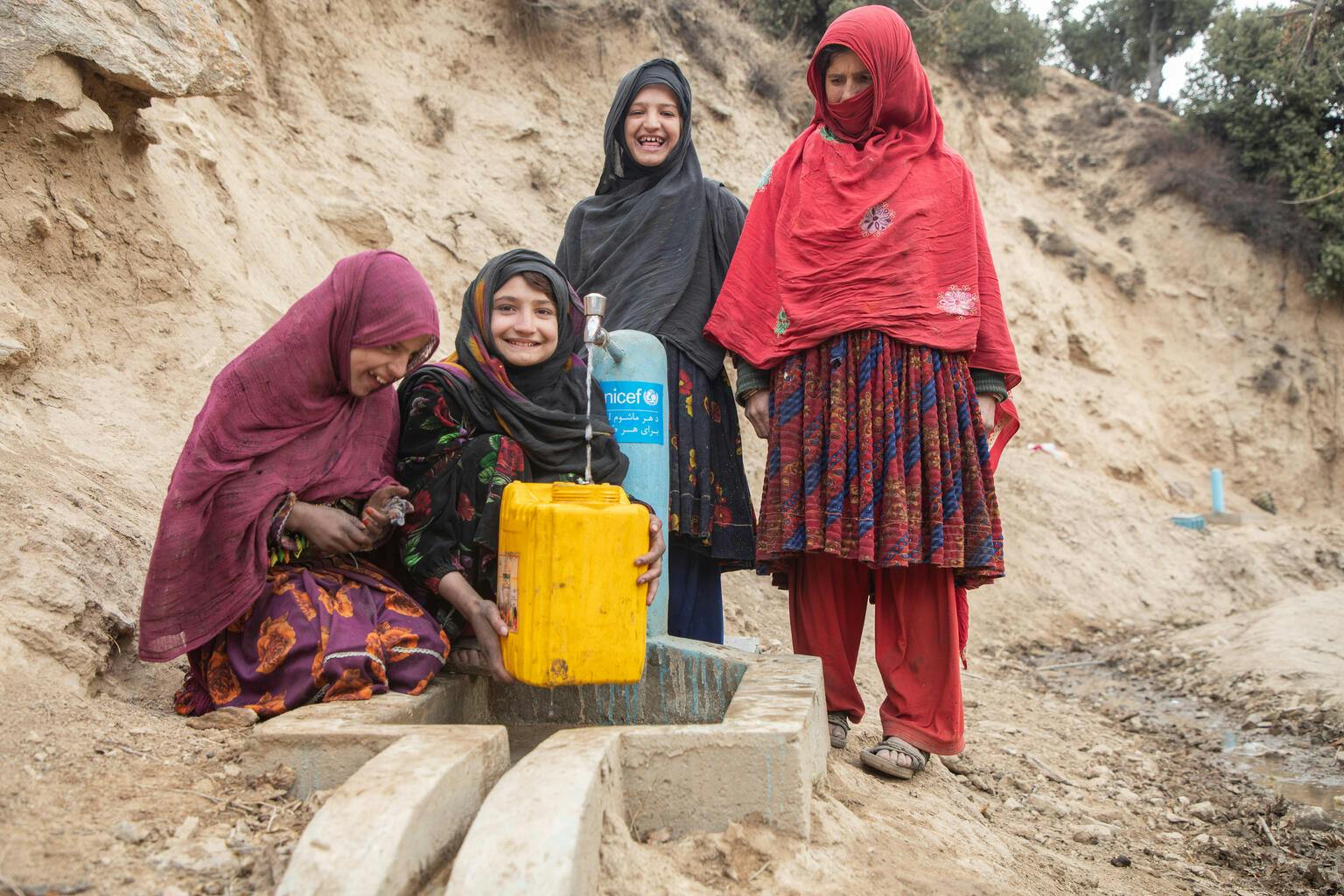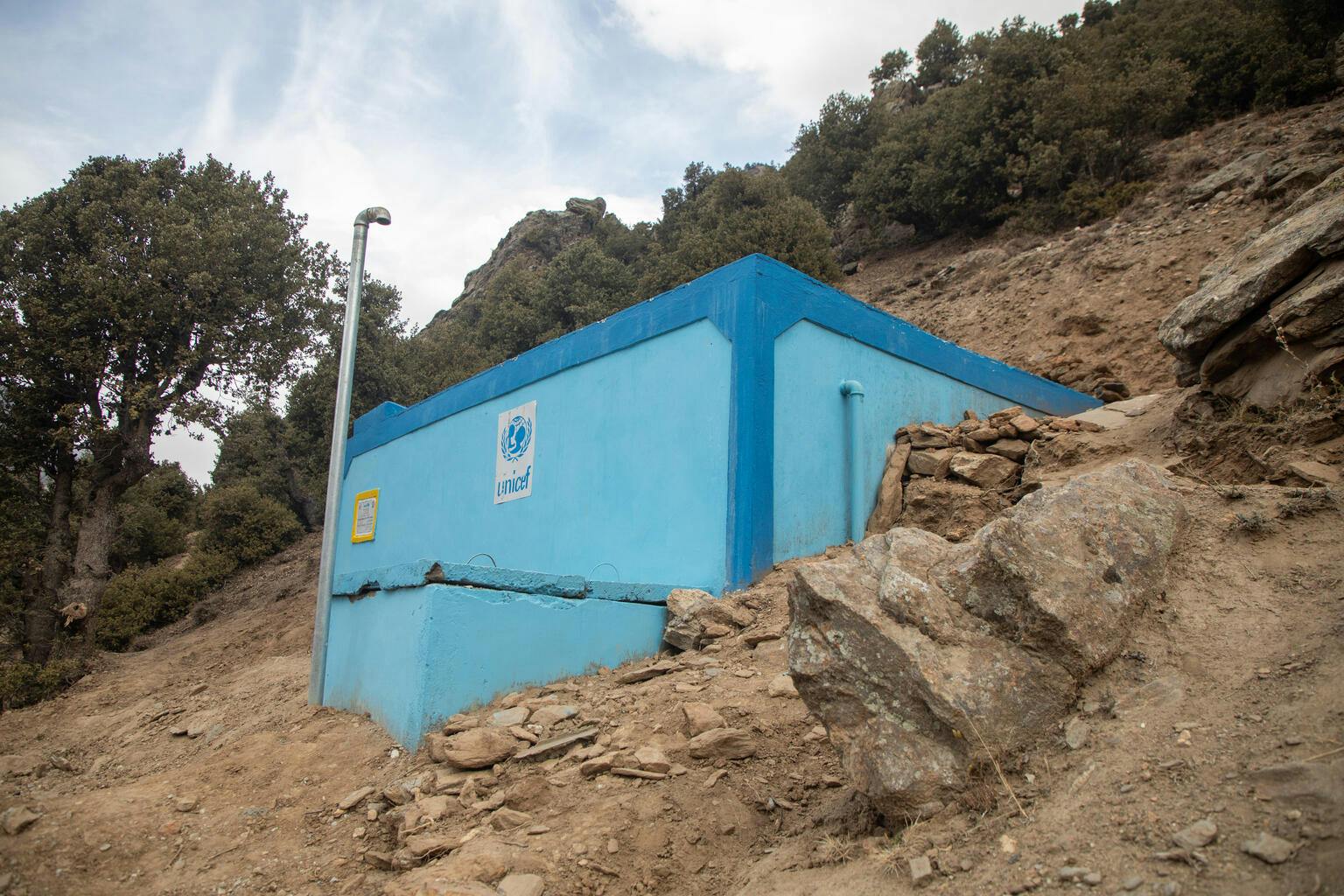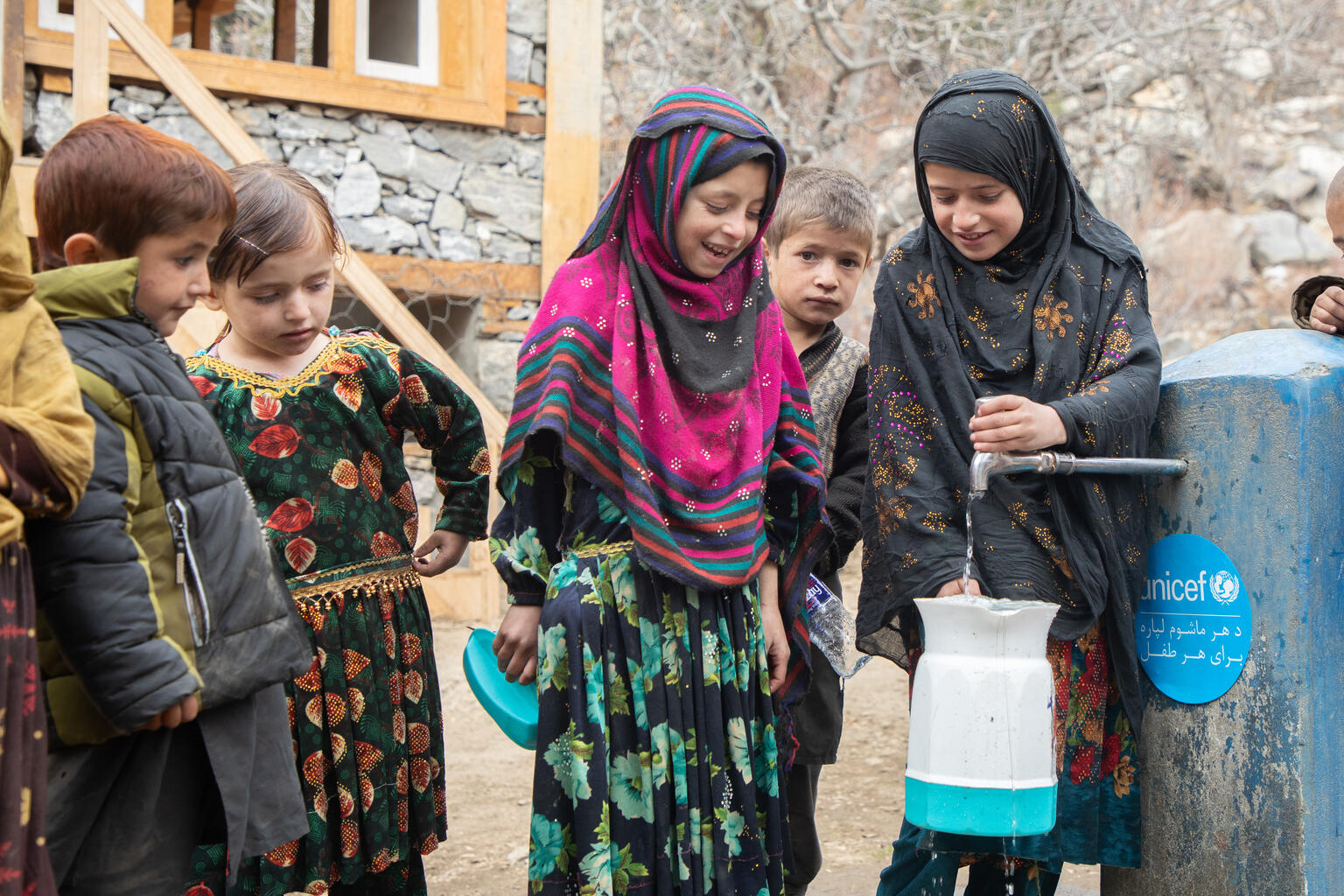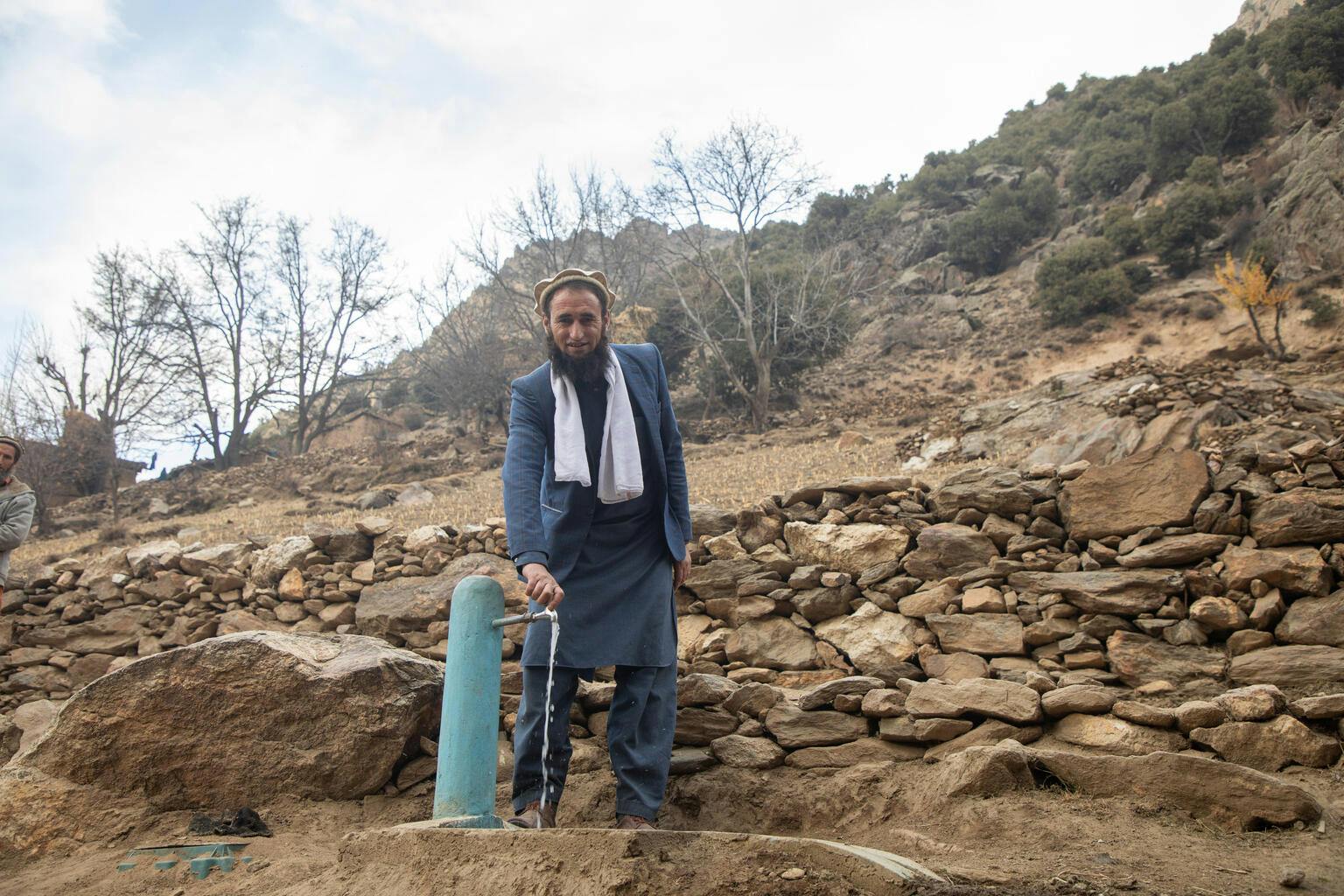
A lifetime supply of water
Home
Stories
A lifetime supply of water
In remote Nuristan province, UNICEF is constructing water supply systems to bring clean, safe water to thousands of Afghanistan’s hardest to reach families.
Adila fills her jerry can at the water tap. She splashes a few drops at her neighbour, and giggles as she trots back home, just a few steps away. Three months ago, Adila had no water near her home at all, let alone right outside the front door.
But with clean water now available any time she needs it, Adila cooks, bathes, washes vegetables, and brews tea without worry. She's less troubled about the health and hygiene of her children.

Adila has water now, just a few steps from her front door, so she can use it any time she likes without making the harsh 30-minute trek to the river multiple times a day.
In beautiful, isolated Nuristan province, villages sprawl between Afghanistan’s northeastern mountains. Just 16 per cent of the population here have access to basic drinking water, and it's not difficult to understand why.
Clean water springs are often sourced high in the jagged peaks, and with Nuristan’s elevation around 3,000 metres, hiking several hundred more to fetch water multiple times per day is no easy task. Many opt for the river, which is closer, but not potable. It may look clean, but it hides bacteria, run-off from farms, animal waste and more.
Building a water system also requires materials like cement and piping, but the closest town offering these materials is over 120 kilometers away over bumpy, dirt roads.
Water reservoirs like this one feed gravity flow systems, holding enough water for each person in the village to use 40 litres per day.

UNI482456
“We used to fetch water from the river,” says Abdul Fatah, a community elder in Payok Abad village, where Adila also lives. “It was not easy.”
The river is a 30-minute walk in one direction. One 20-litre jerry can, when full of water, weighs 20 kilogrammes. Now imagine traversing that distance multiple times per day, up and down hills. And with women at home, busy with other domestic labour, water collection often falls to the children.
A few months ago, UNICEF completed construction of several gravity flow water systems in Nuristan, including in Payok Abad village. Gravity flow systems collect water from a pure spring into a reservoir, and pipes bring the water downhill to water taps in the village. These systems require no pumps, no electricity, and are built to last for decades.
Built with support from USAID, these ensure that Adila, Abdul Fatah and their families have more than 40 litres of clean water per person, per day, every day. In Payok Abad village alone, this gravity flow system pipes water directly to the doorsteps of 227 families – over 1,500 people.

Children in Nuristan province's Kantiwa Valley never had clean water before. Now they have as much as they need, whenever they need it.
“Now we have water all the time, and it has completely transformed our community,” says Abdul Fatah.
“Diseases in our village have reduced, especially among the children,” he adds. “This water system has been a great help to us.”
Abdul Fatah is also head of the Community Development Council in his village, a local structure of elected leaders responsible for overseeing development projects in the area, such as roads, schools – and water systems.
Community Development Councils are also responsible for maintaining the water system, collecting tariffs from families based on water use, and arranging contractors to repair the system as needed. In Payok Abad, water costs just 30 Afghani per month – about 50 cents.

UNI482450
Abdul Fatah, as leader of his village's Community Development Council, is committed to caring for the new water system.
Across Afghanistan, UNICEF has built more than 300 small-scale, environmentally friendly community water systems like this one.
“We are grateful for the help to build this water system,” says Abdul Fatah, “but it is truly us, residents of this village, who maintain it,” says Abdul Fatah. “We will take good care of it, and make sure the water keeps flowing.”